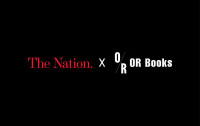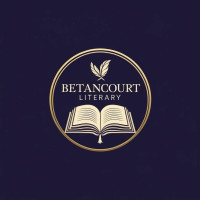firstwriter.com's database of magazines includes details of 2,197 English language magazines from around the world. The database is continually updated: there have been 29 listings added or updated in the last month, and the database was last updated yesterday, July 7. With over a dozen different ways to narrow your search you can find the right magazine for your writing, fast.
News

Richard Benson, the former editor of the Face magazine, has been announced as the editor of a new literary magazine and platform for working-class writers, titled the Bee.
Supported by Faber and actor Michael Sheen, the Bee aims to "fight the increasing marginalisation of working-class writers, and of working-class people in publishing".
Its channels include a website, a podcast and a literary magazine publishing both fiction and non-fiction. The organisers will also run an outreach programme, seeking out new writers from working class backgrounds and supporting their professional development.
"Justice and fairness demands that people from the less well-off sections of society have the chance to tell their stories, and to get them heard," Benson said. "But it’s also about common sense. Much of the important writing being done today, and so many of the best-loved stories come from ordinary working people. So often, it’s stories from the working classes that express what’s really happening in the world."

The partnership with OR Books brings the magazine’s indispensable voice and rich roster of talent to a longform format.
New York, NY—The Nation, America’s leading source of progressive politics and culture, together with OR Books, today announced that they are joining forces in a new book publishing imprint: Nation Books. Launching this fall, the imprint, which will be distributed by OR, will release four to six titles a year with new, younger Nation writers complementing more established voices from the magazine’s rich roster.
Katrina vanden Heuvel, publisher and editorial director of The Nation, welcomed the initiative: “At this perilous moment, The Nation’s indispensable voice and legacy has never been more essential. Our partnership with OR is a great opportunity to deepen the reach and impact of The Nation’s most exciting writers and thinkers, past and present—and inspire a new generation.”
Colin Robinson, publisher at OR, adds: “The first book we published when we started OR was a searing anthology by Nation editors and writers about Sarah Palin, which went on to the New York Times bestseller list. With plentiful new targets, we are very much looking forward to repeating that experience, drawing on the terrific journalists at a superb progressive magazine.”
On Tuesday, June 17, they will celebrate the launch of the new collaboration with a conversation between vanden Heuvel and Ross Barkan, a frequent contributor to The Nation and the author of CUOMO, published by OR Books, at The Francis Kite Club in New York City.

We believe powerful storytelling deserves powerful support. Our agency is dedicated to representing bold voices and unforgettable narratives in mystery, psychological thrillers, romance, women’s fiction, literary fiction, and select non-fiction.
The agency was founded by a USA Today bestselling mystery author and experienced publishing professional. She holds a bachelor's degree in Communications and is currently earning her J.D., bringing both creativity and legal insight to the business of books. Her many years of writing experience allows her to advocate strategically and compassionately for the authors she represents.
She created this agency with a single mission: to empower authors. Whether you're seeking your first publishing deal or are ready to elevate your career, we offer the transparency, guidance, and enthusiasm every writer deserves.
We don’t just shop books—we build careers.

I’m looking for literary and upmarket fiction, particularly with queer themes or from unusual / underrepresented perspectives, as well as select thrillers and nonfiction. I’m open to debut authors at all life stages. I’m looking for literary speculative/high concept fiction from queer/female/transnational perspectives. In crime, I’m looking for a fun, pulpy thriller with a high concept twist or standout setting. In nonfiction, I’m drawn to popular science, politics, and true crime. I’m also looking to work with experts and influencers specialising in personal style, nutrition, psychology, relationships, personal finance, career guidance, parenting and alternative family formation.
Articles
Scrolling on Instagram for several hours at a time, to try and get your work recognized? I might have the perfect way for you to get your work recognized while saving your time, simultaneously! Often, the best way to get your creative work to as many people as possible is by submitting to growing magazines.
Yes, it may seem like doing so won't do much good to your work, but trust me, growing magazines are the ones that will eventually rise to the top. With eye-catching aesthetics and magnificent formatting, global magazines are the perfect opportunity for growing writers and artists to showcase their excellent work to the WORLD!
I have personally submitted to a few global magazines myself, such as the Curio Cabinet Magazine and the Poetic Reveries. There is nothing that can match the happiness a writer gets when they see their name in a published magazine with several other talented writers.
Not only is it a great feeling, but it allows you to feel so much better about your skill and, if anything, rejections only strengthen your perspective! At least that is what my major takeaway from reaching out to these thriving magazines was and I hope you, too, step outside of your comfort zone and try these growing, youth-led poetry and art magazines out!
So, here they are, the top five thriving global magazines from the ever-trending platform for skilful, creative and outstanding writers and artists, Instagram.
Australia’s literary journals are produced in a fragile ecosystem propped up by a patchwork of volunteer labour, generous patrons and, with any luck, a small slice of government funding.
The Sydney Review of Books, the Australian Book Review and Overland were among a group of publications who sought four-year funding from the Australia Council in 2020 but were unsuccessful.
These publications join the ranks of many others – among them Meanjin and Island – defunded by state or federal arts funding bodies in recent years.

Reading the mission statements of Irish literary journals, a common theme emerges: the desire to offer writers the space to develop ideas that may not otherwise find a platform. From the more established titles such as Dublin Review, Crannóg and The Stinging Fly, which published its first issue 20 years ago this month, to more recent outlets like The Bohemyth, Banshee and gorse, fostering talent new and old is the backbone of “the little magazine”.
A vibrant journal scene with a roots-up feel to it has developed in Ireland in the past decade. There are currently in the region of 30 publications across print and online media seeking submissions multiple times a year. This has coincided with a growing enthusiasm for creative writing in general, with all of the major colleges in Ireland and many other cultural organisations offering programmes ranging from evening courses for beginners to two-year MFAs (Master of Fine Arts).

“Thomas Pynchon is a young writer, just twenty, who has previously published fiction in Epoch. He is a Cornell graduate and now lives in Seattle.”
Writers know that the time between when a piece is accepted by a literary magazine and when it is actually published can be rather protracted—my longest span was three years—and by the time Thomas Pynchon appeared in the Spring 1960 issue of The Kenyon Review, he was a still-young 23. He’d just graduated from Cornell, his time there split by a stint in the Navy. He worked for Boeing in Seattle—writing for Bomarc Service News, an internal newsletter.
Although tasked with writing technical pieces about anti-aircraft missiles, Pynchon was characteristically wry. In “The Mad Hatter and the Mercury Wetted Relays,” Pynchon informs readers that Lewis Carroll’s Mad Hatter had gone mad from “chronic mercurialism” or “hatter’s shakes,” which could affect Boeing workers if certain wire-wrapped glass capsules explode. “When dealing with mercury,” Pynchon warns, “even in small amounts, respect it and play it safe. Don’t become a ‘Mad Hatter,’ you might find it to be much more unpleasant than attending a mad tea party.”
The same jaunty rhythms mark “Entropy,” Pynchon’s story in The Kenyon Review. Although he would later dismiss the piece as an example of “overwriting,” something “too conceptual, too cute and remote,” the story is playfully chaotic—the type of glorious excess for which literary magazines are made.
Submit a listing
If you run, are involved in, or just know of a magazine not included in our magazines database, you can suggest a new listing by clicking here. You can also use this form for suggesting amendments to existing listings.
To view our inclusion policy, click here.





